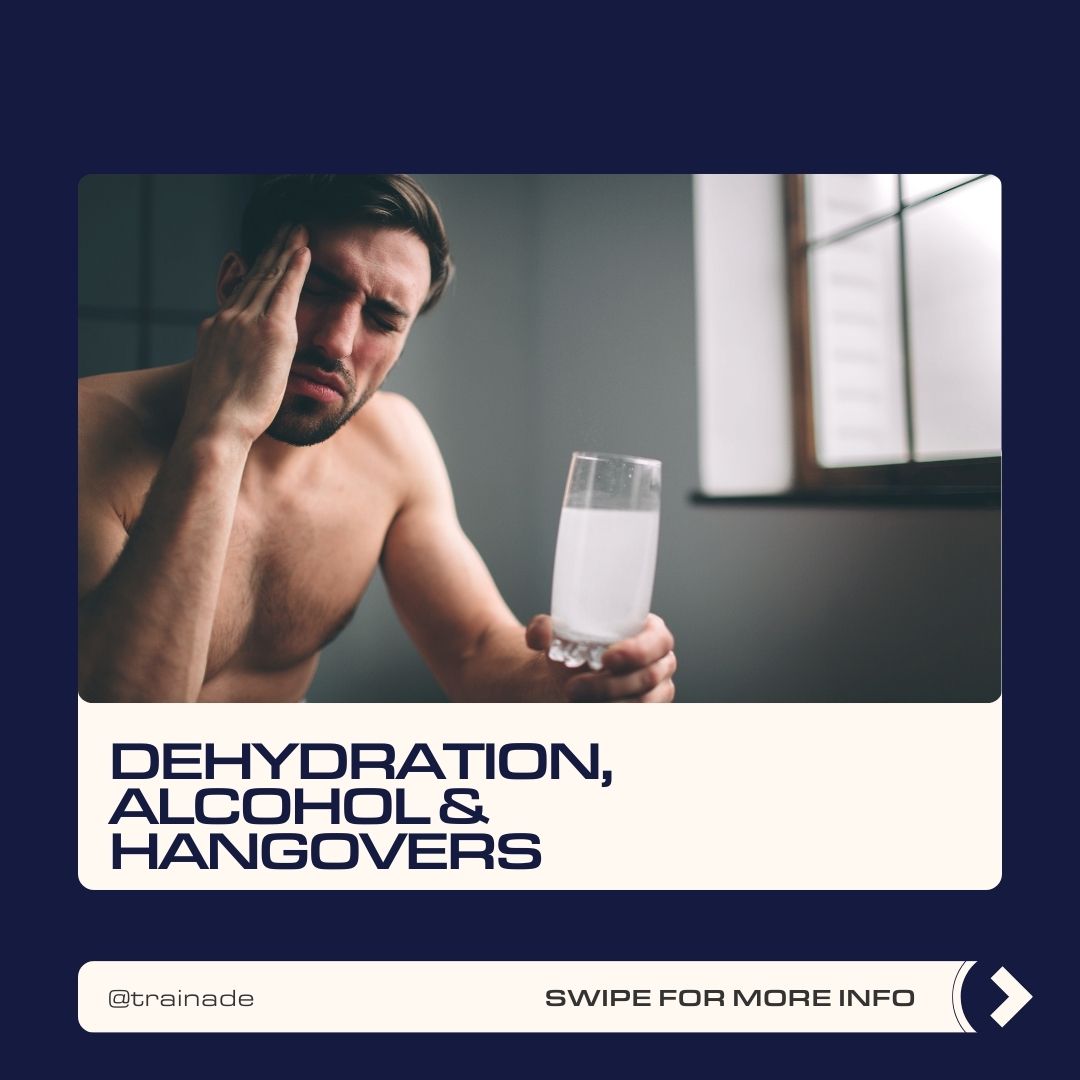Written by Damien Cox - Accredited Practising Dietitian
Humans have used alcohol in many different ways for thousands of years, a germ killer, as fuel, and for stripping paint. However alcohol is the most commonly used psychoactive drug in the world. It is estimated that on average each adult consumes 4.3L of pure alcohol per year [1]. We’ve all heard of “breaking the seal” and then constantly having to urinate throughout the night. Drinking any amount of fluid in large quantities will cause you to go to the bathroom. However alcohol is unique and will amplify this affect. Thus the more fluid that leaves your body, the more likely you are to be dehydrated. This can also lead to increased hangover symptoms and feeling down after your big night out. Hopefully this will give you a bit more of an insight as to why dehydration, alcohol and hangovers are all linked. You may even find some tips and tricks to help you on your next night out.
As mentioned, drinking large quantities of any fluid will cause you to urinate more. However alcohol does something physiologically within the body that makes it unique to other drinks. Alcohol supresses the release of a hormone called vasopressin [2]. Vasopressin is an antidiuretic hormone (ADH) that is produced by the brain that sends signals to the kidney causing them to retain more fluid [3]. By alcohol supressing the release of vasopressin this causes the kidneys to excrete urine and increase that trip to the bathroom throughout the night. As a result, alcohol can increase the loss of fluid and therefore increase the likelihood of becoming dehydrated.
Dehydration symptoms that occur with consuming alcohol often are, thirst, fatigue, and headaches. The more alcohol you consume the more urine you’ll need to pass which in turn will lead to more fluid leaving the body causing you to become more dehydrated.
If you are already dehydrated before consuming alcohol the volume of water in your body is already low. Now adding alcohol into the equation is going to cause you to become even further dehydrated.
You may think to yourself well “why don’t I just constantly drink water as well as alcohol, that’ll stop me from being hungover”. Unfortunately, that’s not the case. You’ll only hang onto about one third of the water the extra water you drink. You could potentially decrease the symptoms of dehydration and thus a hangover. However most of the water will be excreted through the urine due to the alcohol supressing the vasopressin hormone.
If you are planning on having a few drinks or going on a night out it is important to drink plenty of fluids beforehand and be hydrated. Constantly drink water in combination with alcohol, this could decrease the symptoms of a hangover the next day. Already being dehydrated and then starting to drink alcohol is going to cause one nasty hangover.
Reference List:
1. DOI 10.1007/s40279-014-0192-8 2. https://www.niaaa.nih.gov/publications/brochures-and-fact-sheets/hangovers 3. doi: 10.1007/s00213-018-5099-x

